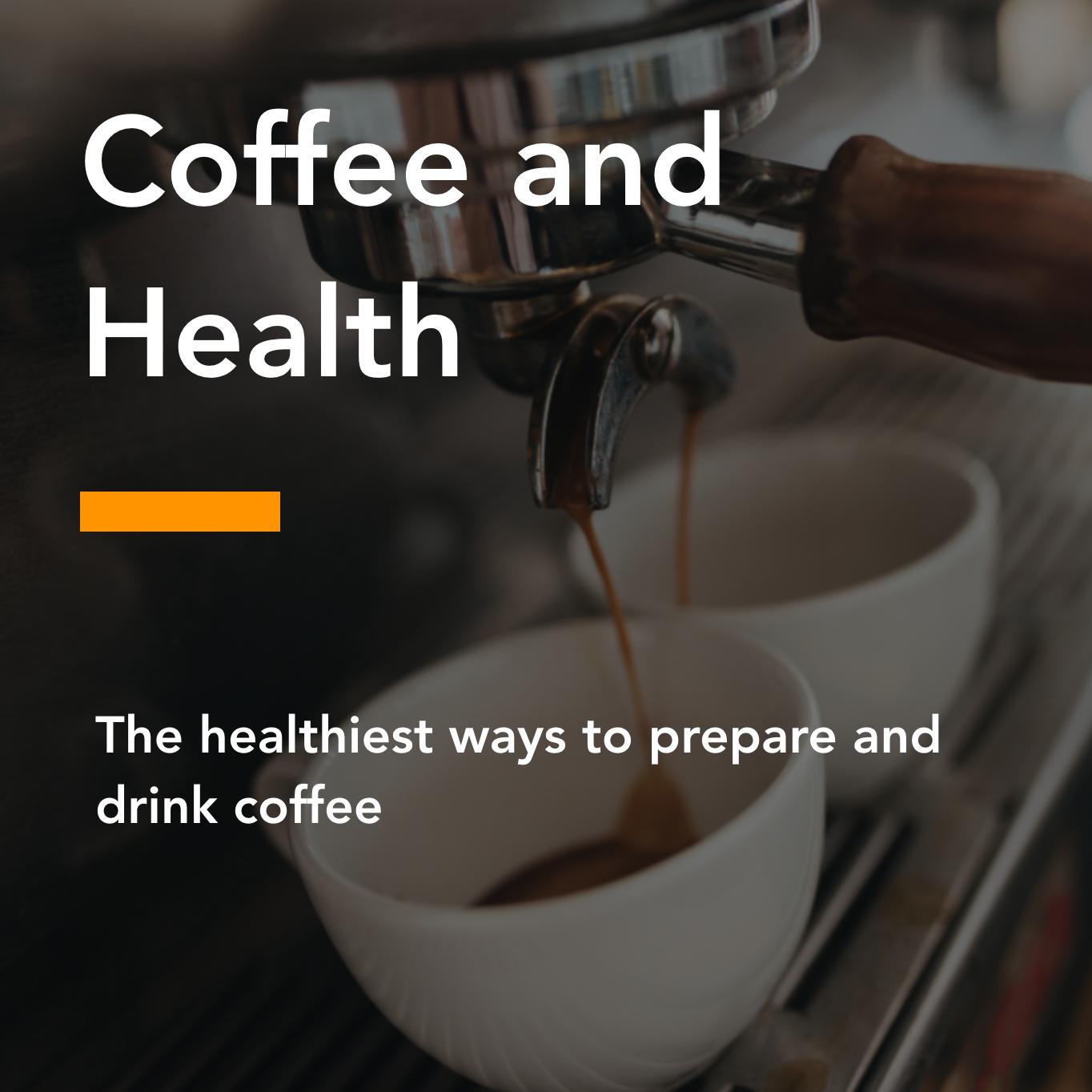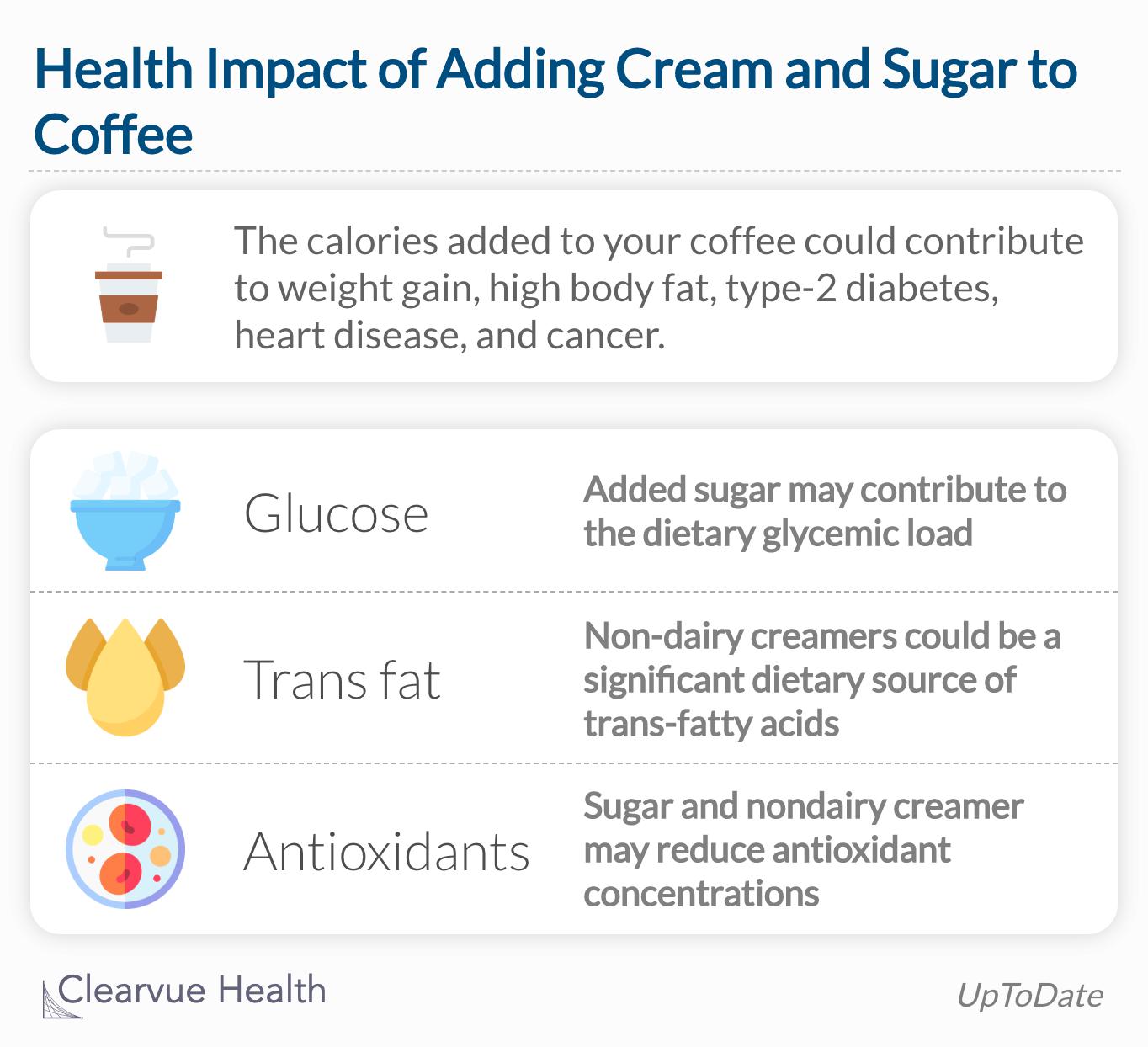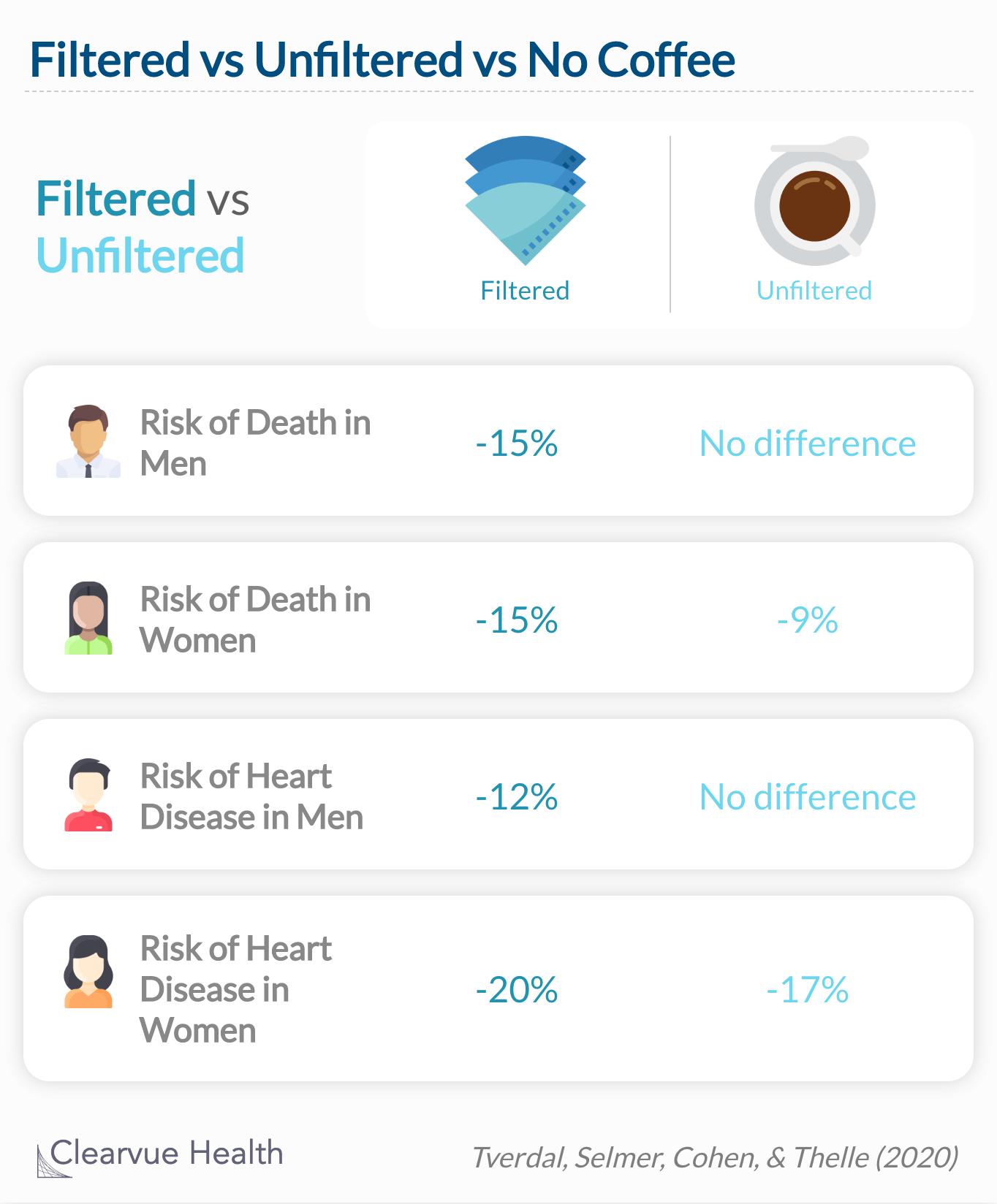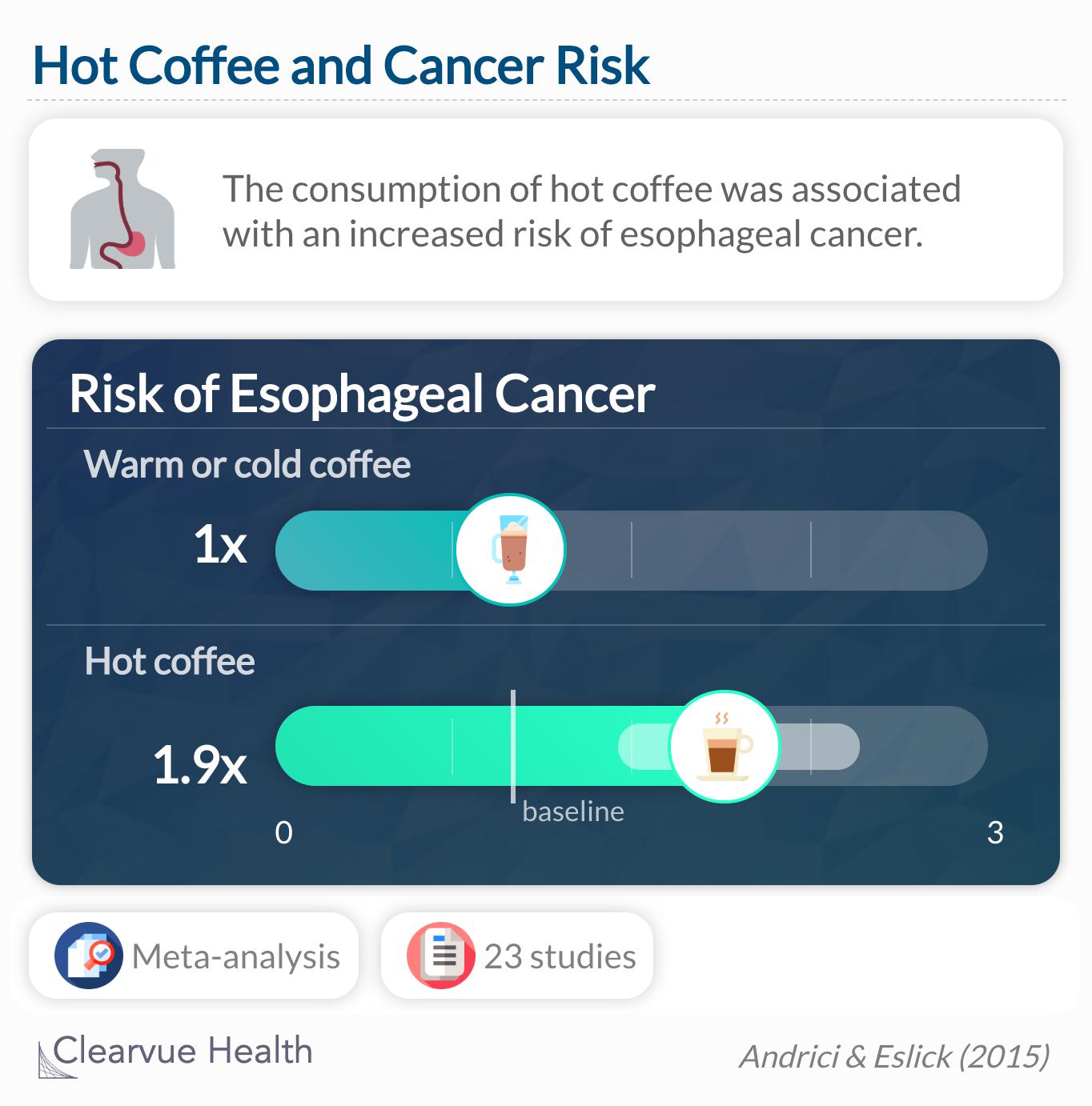Coffee and health: the healthiest ways to prepare and drink coffee
Coffee is a guilty pleasure that keeps us energized and positive. Regardless of how you take your coffee, scientists believe that coffee has a beneficial effect on our overall health. However, the ways in which we drink coffee may impact how beneficial it really is. Below are a few scientific articles that inform our understanding of the healthiest ways to drink coffee.
Limit cream and sugar
First, we must talk about cream and sugar. These calories in your coffee could contribute to weight gain, high body fat, type-2 diabetes, heart disease, and cancer if overconsumed.
Adding cream and sugar to coffee can cause weight gain and serious conditions like type-2 diabetes and heart disease.
Sugar is a carbohydrate that is known to increase your risk of many health conditions. For example, high sugar consumption is linked to acne and accelerated aging of the skin. More severely, scientists have associated sugar consumption with heart disease and cancer. Coffee creamer is full of sugar and trans fatty acids, which are connected to weight gain and type-2 diabetes. The bottom line, the negative effects of sugar and cream will outway any potential benefits of the coffee itself. Therefore, it is best to regulate your use of cream and sugar.
Filtered brew
Next, there is a difference in health benefits between filtered and unfiltered coffee. The research shows that both filtered and unfiltered coffee are generally good for you, but filtered coffee is more likely to decrease your risk of heart disease and death.
The multivariate-adjusted hazard ratios (HRs) for any death for men with no coffee consumption as reference were 0.85 (082-0.90) for a filtered brew, 0.84 (0.79-0.89) for both brews, and 0.96 (0.91-1.01) for an unfiltered brew. For women, the corresponding figures were 0.85 (0.81-0.90), 0.79 (0.73-0.85), and 0.91 (0.86-0.96) for filtered, both brews, and unfiltered brew, respectively.
Source: Coffee consumption and mortality from cardiovascular diseases and total mortality: Does the brewing method matter?
In this study, over 500 thousand participants in Norway offered their medical data and coffee habits for review. This data offers a few key takeaways. First, both men and women can reduce their risk of death and heart disease by drinking coffee. Second, women can benefit from unfiltered coffee as well, but to a lesser degree. Lastly, men who drink unfiltered coffee have the same risk of death and heart disease as men who do not drink coffee. In sum, drinking filtered coffee may provide extra protection against death and heart disease compared to unfiltered coffee, but neither will increase your risk.
Temperature
The temperature of your coffee, or any beverage, plays a role in its health impact. Obviously, a scolding hot cup of coffee can burn your mouth and tongue. It can also cause severe burns if spilled. Once inside the body, researchers believe that extremely hot coffee will do internal damage and even contribute to your risk of esophageal cancer.
Consumption of hot food and drink was associated with an increased risk of any esophageal cancer (OR=1.90, 95% CI=1.46, 2.48).
Source: Hot Food and Beverage Consumption and the Risk of Esophageal Cancer
A study compared the risk of esophageal cancer in those who drink very hot coffee and those drink warm or cold coffee. After analysis, they found that drinking hot coffee compared to warm or cold coffee could nearly double a person's risk of esophageal cancer. Clearly, cancer is a grave consequence that greatly overshadows any potential benefits of coffee. Therefore, it is advised to drink warm or cold coffee in order to avoid increasing your risk of esophageal cancer or suffering burns.
Final thoughts
Coffee has been associated with many health benefits. The healthiest way to drink coffee is with minimal cream and sugar, filtered, and at a warm or cold temperature. Next time you are at your local coffee shop, try the cold brew instead of an extra hot caramel macchiato- or at least drink your caramel macchiatos in moderation.






































